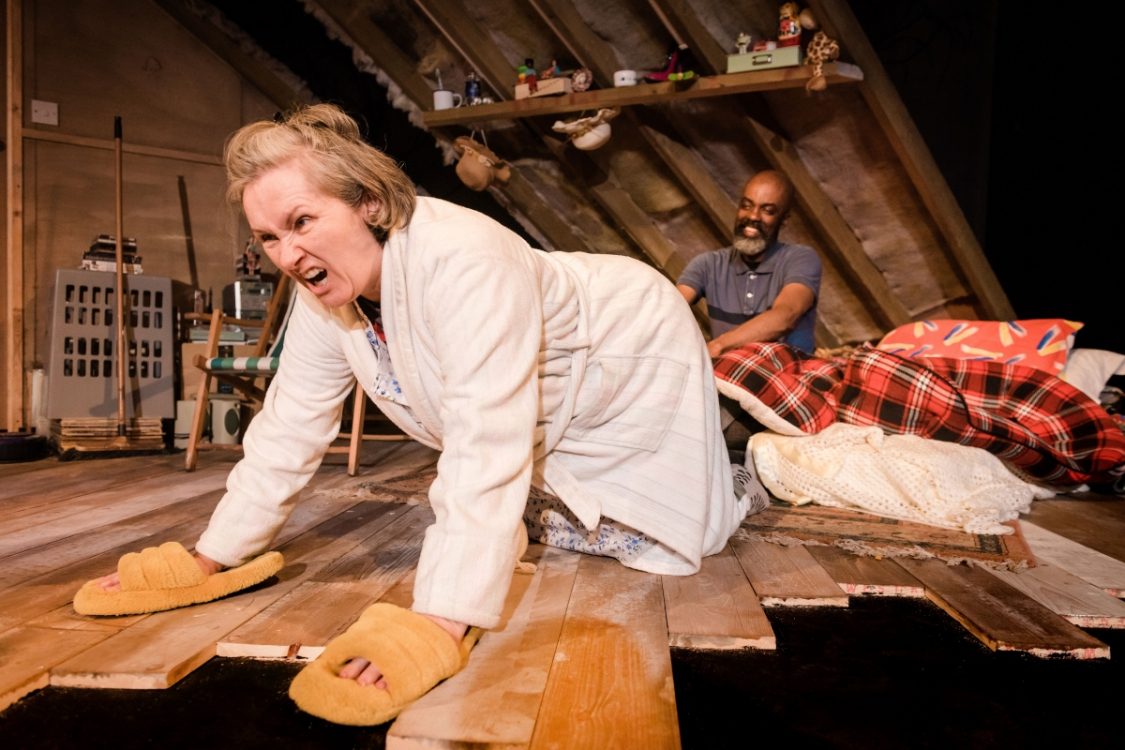SAD means Seasonal Affective Disorder and is the reason why Gloria lives in an attic served by her long-suffering husband. Or maybe it is the excuse she gives for her exasperatingly self-centred approach to life.
Played with a pungent whiff of unwashed hermit by Debra Baker, Gloria took to the attic after her mother’s death. She sleeps in a dog bed, poos in a bucket and listens to old songs and tracks of beach sounds while lying under a daylight lamp.
All is not what it seems, however, as she receives visits through the skylight from an obnoxious neighbour, Daniel, who she summoned over the rooftops with the call: ’fancy a fuck?’ Her supposedly all-encompassing depression lifts when no one is with her and she can get up out of her mumpish pose and dance to seventies music.
Gloria provides the bass notes for a play about relationships and expectations, it really takes off when we leave the attic and explore the other characters in her life.
Her husband, played with stridency and pathos by Kevin N. Golding, is an old soldier of the left, still re-running scenes from the Battle of Orgreave. He does not understand his wife or the world in which he now lives. This is notably apparent when he comes in contact with Daniel, played by Lucas Hare as an oleaginous housing officer who combines every socially aware cliché with a tin ear for any real human need.
The last actor in this quartet of social misery is Magda played by Izabella Unbanowicz, the Croatian best friend of Gloria, whose housing problems bring her into Daniel’s unsavoury orbit. Her past was abusive; her present-day living conditions are squalid and prone to crime; her future is uncertain. She wants to be ‘safe but free’, an almost impossible conundrum.
Everyone, it seems, has needs which are not only unmet by their present circumstances, they are essentially unable to be met because their personalities get in the way.
At least Gloria, who is writing an autobiography but has nothing to say, is self-aware enough to declare ‘I wouldn’t stay with me if I had the choice.’
The acting here is fierce and funny, the dialogue sharp and the direction pacy. The problem with the play is that it runs as a series of sharply drawn character studies which are all well observed but have no dramatic resolution.
There are some great lines, however. Gloria wonders why she shouldn’t hide away at a time when ‘grotesque priapic man-children run the world.’ She does have a point.

